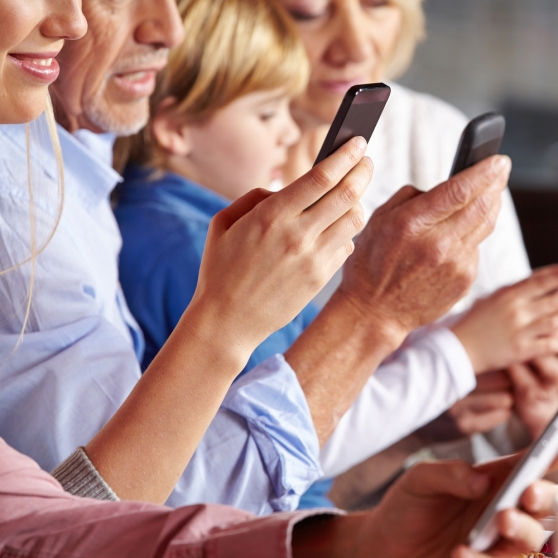Tips on Losing Weight and Keeping It Off
The average American consumes an estimated 20-25 percent of daily energy in front of a screen. Unfortunately, research suggests that multitasking while eating, including watching TV or working, can lead to overeating. Distracted eating is also linked unhealthy snacking (chips, soda, etc.). Combine those unhealthy snacks with overeating and weight gain is likely to follow. Thankfully, research also has shown that paying greater attention to a meal was linked with less eating later on. Portion control is another way that you can avoid binge eating while distracted. For example, don’t bring the whole bag of chips with you the next time you sit down in front of the TV. Instead, make it more difficult to overeat by putting the desired amount into a separate bowl.
MedlinePlus, "Weight Control" Centers for Disease Control and Prevention, "The Health Effects of Overweight and Obesity" Centers for Disease Control and Prevention, "Adult Obesity Facts" University of Rochester Medical Center, "Counting Liquid Calories" Rheumatology, "Sugar-Sweetened Soft Drink Consumption and Risk Of Developing Rheumatoid Arthritis In Women" Journal Of Applied Physiology, "Effects of aerobic and/or resistance training on body mass and fat mass in overweight or obese a Mayo Clinic, "Heart disease prevention: Strategies keep your heart healthy" Arthritis Foundation, "Prevent and Manage Arthritis" Centers for Disease Control and Prevention, "Physical Activity and Arthritis Overview" Centers for Disease Control and Prevention, "Improving Your Eating Habits" American Journal of Clinical Nutrition, "Television watching increases motivated responding for food and energy intake in childr Harvard Medical School, "Distracted eating may add to weight gain" British Medical Journal, "The joint impact on being overweight of self reported behaviours of eating quickly and eating until fu Journal Of The American Dietetic Association, "Faster self-reported speed of eating is related to higher body mass index in a na Journal Of The American Dietetic Association, "Eating slowly led to decreases in energy intake within meals in healthy women." WIN, "Better Health and You" Harvard School of Public Health, "Food and Diet" University of Wisconsis-Madison, "Irritable Bowel Syndrome (IBS)" National Digestive Diseases Information Clearinghouse, "Irritable Bowel Syndrome" Mayo Clinic, "Weight loss: Feel full on fewer calories" University of Maryland Medical Center, "Stress" Cornell Chronicle, "Mood-food connection: We eat more and less-healthy comfort foods when we feel down, study finds" FamilyDoctor, "Fiber: How to Increase the Amount in Your Diet" MedlinePlus, "Dietary Fiber" Mayo Clinic, "Fasting and food choices" Healthy Eating | SF Gate, "Does Skipping Meals Make You Fat?" Harvard Medical School, "Sleep and Disease Risk" Mayo Clinic, "Sleep and weight gain: What's the connection?" Mayo Clinic, "Sleep and energy balance - What's the connection?" Mayo Clinic Health Letter, "For good health, make sleep a priority" DailyRx, "Too Little Sleep, Too Big a Waistline | dailyRx" DailyStrength, "The Friendship Diet - How Your Friends Influence Your Weight by Dr. Georgianna Donadio/Whole Person Health Care" U.S Department of Health, “Aim for a Healthy Weight” New York Times, “Obesity spreads to friends, study concludes” PLOS|One, “An Actor-Based Model of Social Network Influence on Adolescent Body Size, Screen Time, and Playing Sports” Courtesy of Micro10x | Dreamstime Courtesy of Punsayaporn | Dreamstime Courtesy of Nikuwka | Dreamstime Courtesy of Robert Kneschke | Dreamstime Courtesy of Tatyana Gladskikh | Dreamstime Courtesy of Dmitri Maruta | Dreamstime Courtesy of Monkey Business Images | Dreamstime Courtesy of Alikeyou | Dreamstime Courtesy of Brian Chase | Dreamstime Courtesy of Rangizzz | Dreamstime Courtesy of Ellobo1 | Dreamstime Courtesy of Monkey Business Images | Dreamstime Courtesy of Candybox Images | Dreamstime Courtesy of Wavebreakmedia Ltd | Dreamstime

